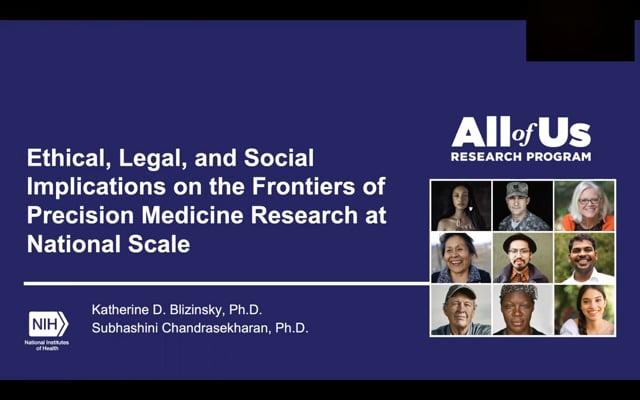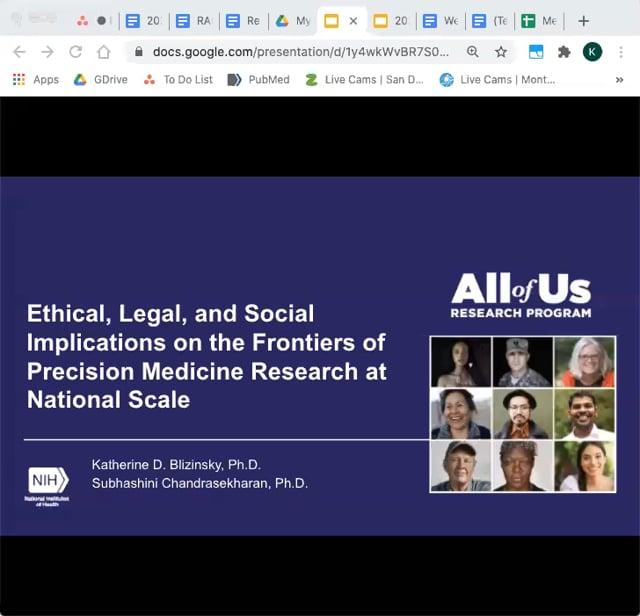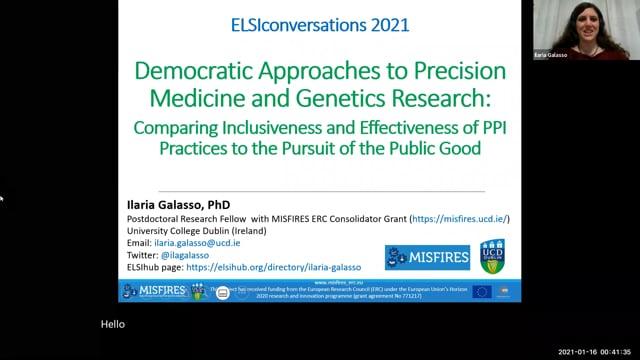When Dogs Play Cards: Interviews with Scientists, Researchers, and Oversight Committee Members on Ethical Guidelines for Human-Animal Chimera Research
Kaitlynn Craig, MA - Case Western Reserve University
ELSIconversations - March 19, 2021
Advances in human stem cell science along with gene editing techniques enable scientists to more effectively conduct stem cell-based human-animal chimera research (i.e studies where human cells are allowed to biologically humanize animal hosts in particular regions, such as the central nervous system, for translational biomedical research). Interviews were conducted with scientists, researchers, and members of oversight committees involved in chimera research from universities and research institutions in the United States. Questions focused on perspectives and experiences regarding the ethical and conceptual strengths and challenges raised by chimera research and its institutional, national, and international oversight. Preliminary findings are reported. Interviewees explained that chimera research is evolving and anticipate that ethical guidelines for conducting chimera research will also change in response to scientific advances. Individuals noted that media reports overstate the current capabilities of using human-animal chimeras in scientific investigations. Primary ethical concerns centered on the potential for animals to experience enhanced pain and suffering, though it was reported that those experiments are not currently being conducted. Interviewees also expressed concern about unanticipated cognitive development of animals used in experiments. Generally, scientists, researchers, and oversight committee members are satisfied with the current process for resolving ethical issues that arise in studies involving chimeras. However, the moral status and “humanization” of stem cell-based human-animal chimeras will continue to present challenges to both scientists and oversight committees in the future. Our research aims to provide empirical evidence to support modifications to ethical guidelines for human-animal chimera research.
Tags
Videos in Series
-
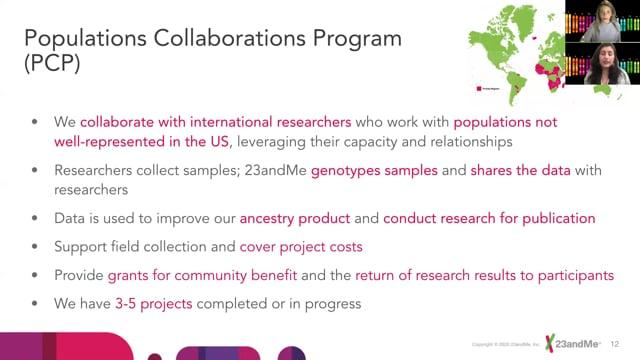
ELSIconversations 1: ELSIcon2020 - A Prospectus on Ethical Issues in the Context of Collaborations Between Academic and Non-academic Institutions on Genetics Research
-
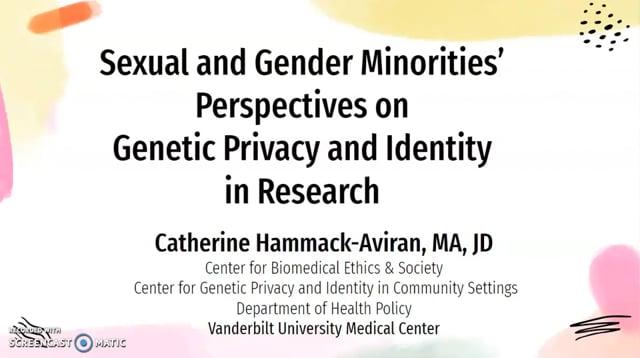
ELSIconversations 1: ELSIcon2020 - Sexual and Gender Minorities’ Perspectives on Genetic Privacy and Identity in Research
-
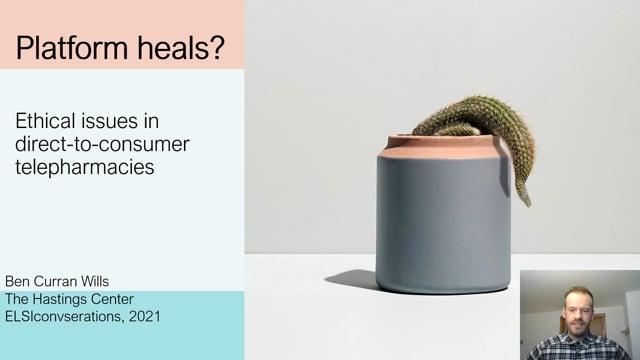
ELSIconversations 1: ELSIcon2020 - Platform Heals? Ethical Issues in Direct-to-consumer Telepharmacies
-
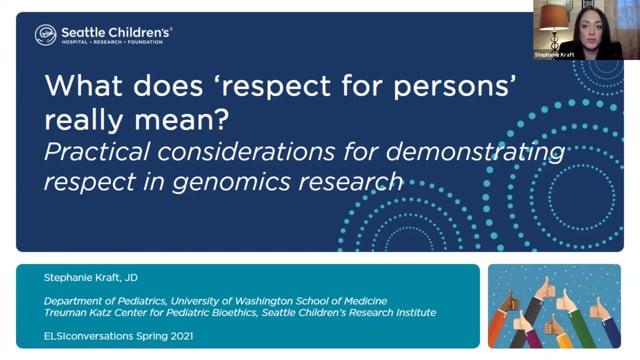
ELSIconversations 1: ELSIcon2020 - What does ‘respect for persons’ really mean? Practical considerations for demonstrating respect in genomics research
-
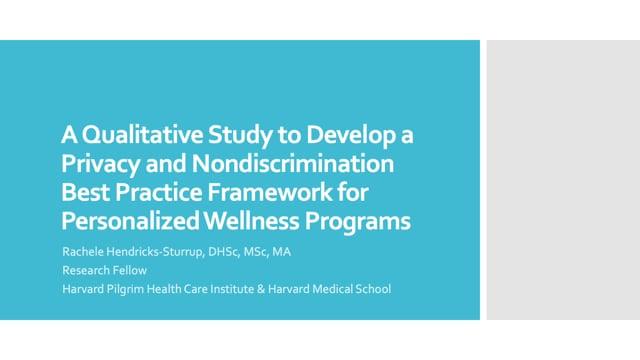
ELSIconversations 1: ELSIcon2020 - A Qualitative Study to Develop a Privacy and Nondiscrimination Best Practice Framework for Personalized Wellness Programs
-
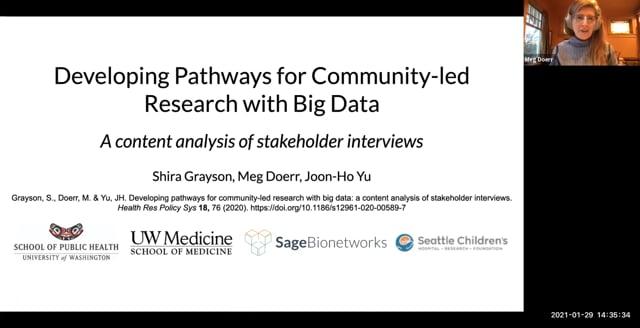
ELSIconversations 1: ELSIcon2020 - Developing Pathways for Community-led Research with Big Data: A Content Analysis of Stakeholder Interviews
-
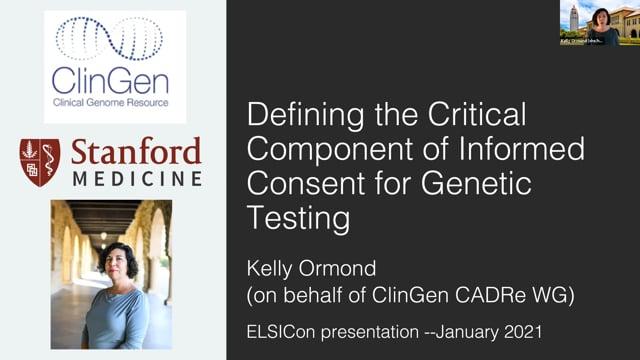
ELSIconversations 1: ELSIcon2020 - Defining the Critical Components of Informed Consent for Genetic Testing
-
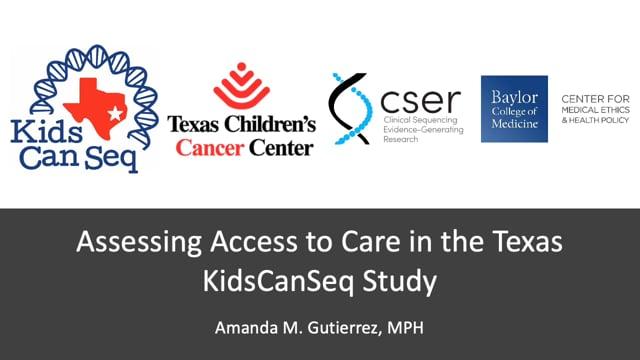
ELSIconversations 1: ELSIcon2020 - Part 2. Assessing Access to Care in the Clinical Sequencing Evidence-Generating Research Consortium: Contexts and Challenges
-
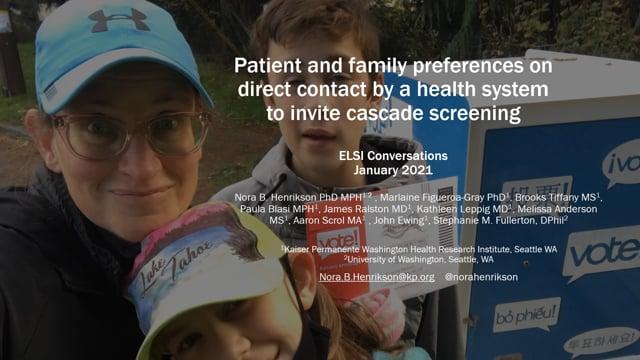
ELSIconversations 1: ELSIcon2020 - Patient and family preferences on direct contact by a health system to invite cascade screening
-
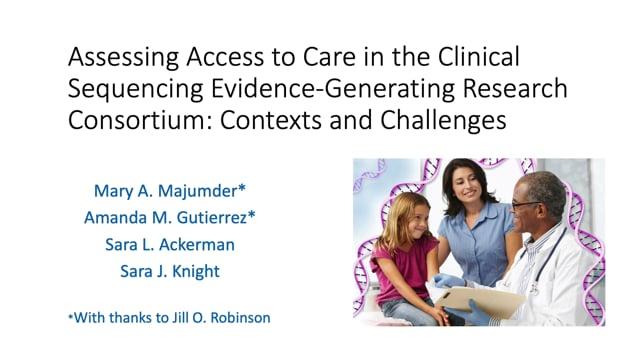
ELSIconversations 1: ELSIcon2020 - Part 1. Assessing Access to Care in the Clinical Sequencing Evidence-Generating Research Consortium: Contexts and Challenges
-

ELSIconversations 1: ELSIcon2020 - Which Public, What Comments? An Analysis of Public Comments on Human-Animal Chimera Research Submitted to the National Institutes of Health
-
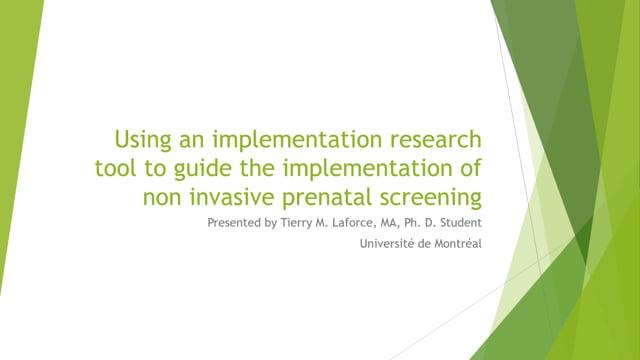
ELSIconversations 1: ELSIcon2020 - Using an implementation research tool to guide the implementation of non-invasive prenatal screening
-
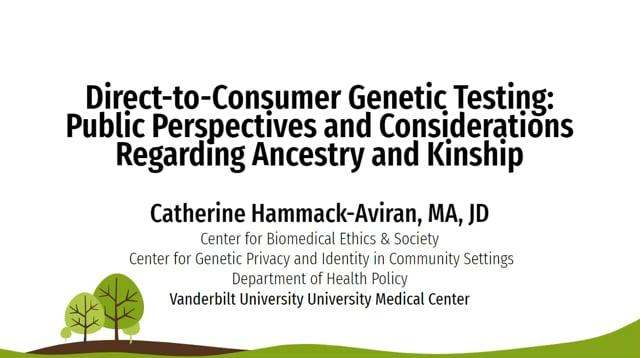
ELSIconversations 1: ELSIcon2020 - Direct-to-Consumer Genetic Testing: Public Perspectives and Considerations Regarding Ancestry and Kinship
-
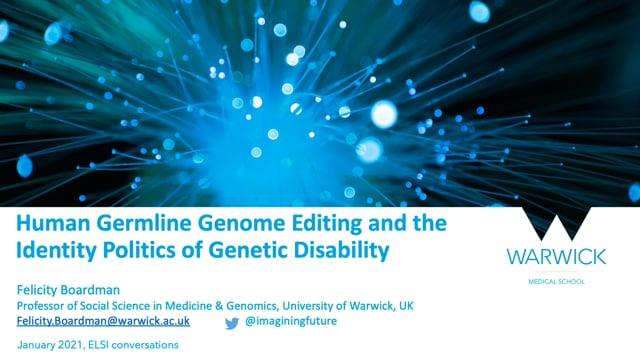
ELSIconversations 1: ELSIcon2020 - Human Germline Genome Editing and the Identity Politics of Genetic Disability
-
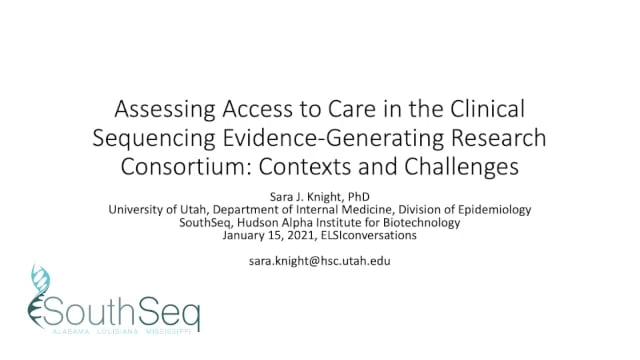
ELSIconversations 1: ELSIcon2020 - Part 4. Assessing Access to Care in the Clinical Sequencing Evidence-Generating Research Consortium: Contexts and Challenges
-
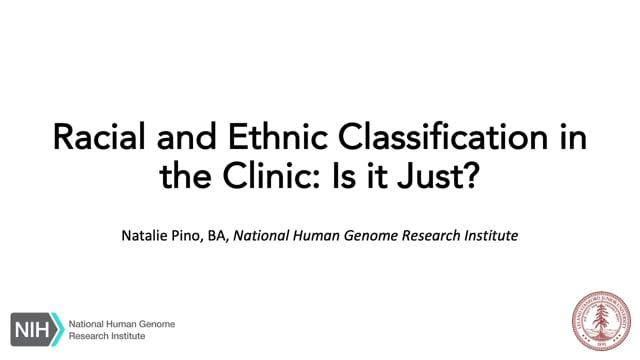
ELSIconversations 1: ELSIcon2020 - Racial and Ethnic Classification in the Clinic: Is it Just?
-
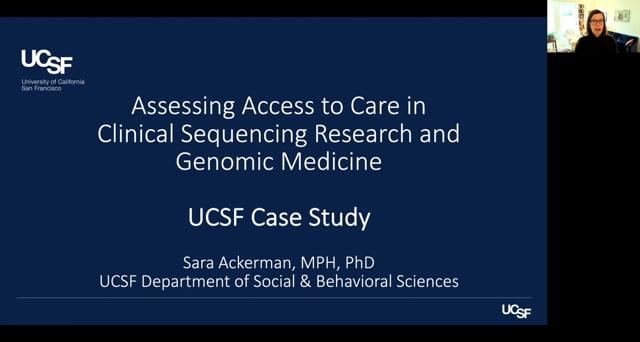
ELSIconversations 1: ELSIcon2020 - Part 3. Assessing Access to Care in the Clinical Sequencing Evidence-Generating Research Consortium: Contexts and Challenges

